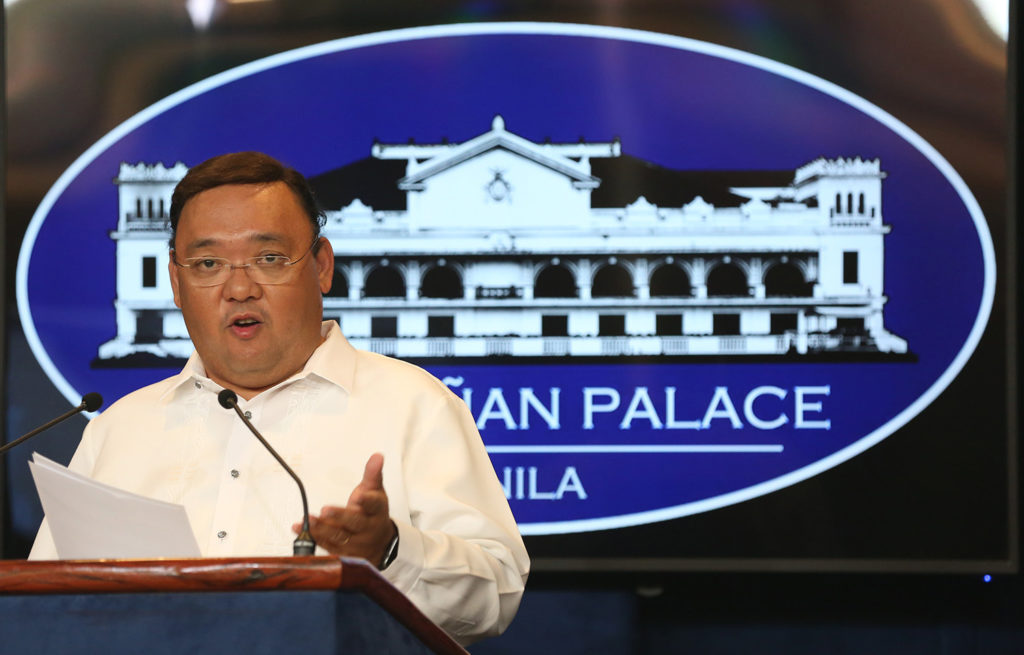Palace defends joint exploration plan

Presidential Spokesperson Harry Roque anwer questions din a press briefing at New Executive Bldg, Malacañang.
INQUIRER PHOTO/JOAN BONDOC
It is not unusual for countries to enter into joint exploration agreements covering exclusive economic zones (EEZ) even if conflicting claims are involved, Malacañang said on Monday as it continued to defend its plan to team up with China to explore areas in the West Philippine Sea for energy reserves.
China has a deal with Vietnam for joint exploration and development of the Gulf of Tonkin despite their conflicting claims in the South China Sea, according to presidential spokesperson Harry Roque.
Brunei and China, both claimants in the South China Sea, also have a joint venture in oil field services, Roque said.
“All these joint exploration agreements mean that if ever we enter [into] a joint exploration and development agreement, it wouldn’t be the first in the world as in fact [China National Offshore Oil Corp.] already has existing joint exploration agreements even with Vietnam,” he said.
The Philippines could use the Vietnam-China agreement as a model for its own possible deal with China, he added.
Article continues after this advertisementMoreover, the government is allowed to pursue such an agreement, Roque said, citing a 2004 Supreme Court ruling in La Bugal v. Ramos, which said the state could secure the help of foreign companies to explore mineral resources in the country as long as it maintains right of full control.
That ruling, however, covered only land exploration, acting Chief Justice Antonio Carpio said in a television interview on Monday.
For comprehensive coverage, in-depth analysis, visit our special page for West Philippine Sea updates. Stay informed with articles, videos, and expert opinions.